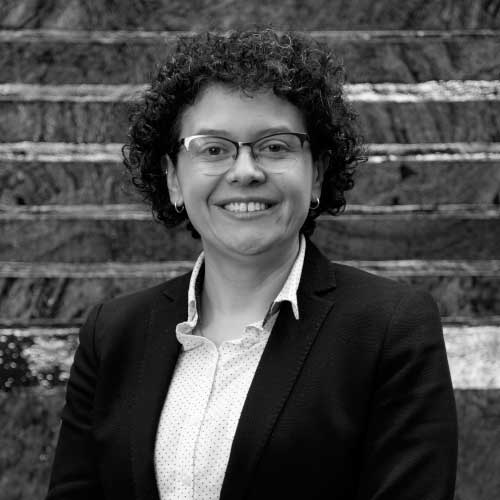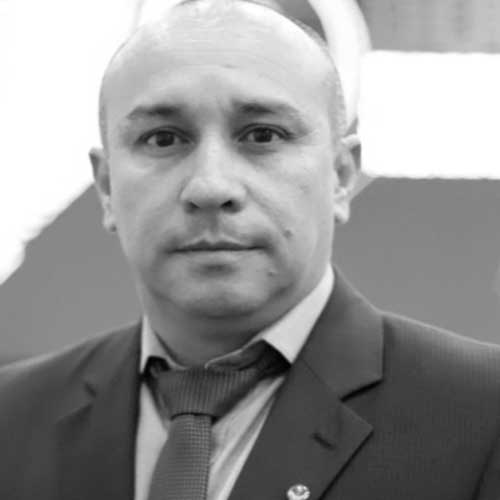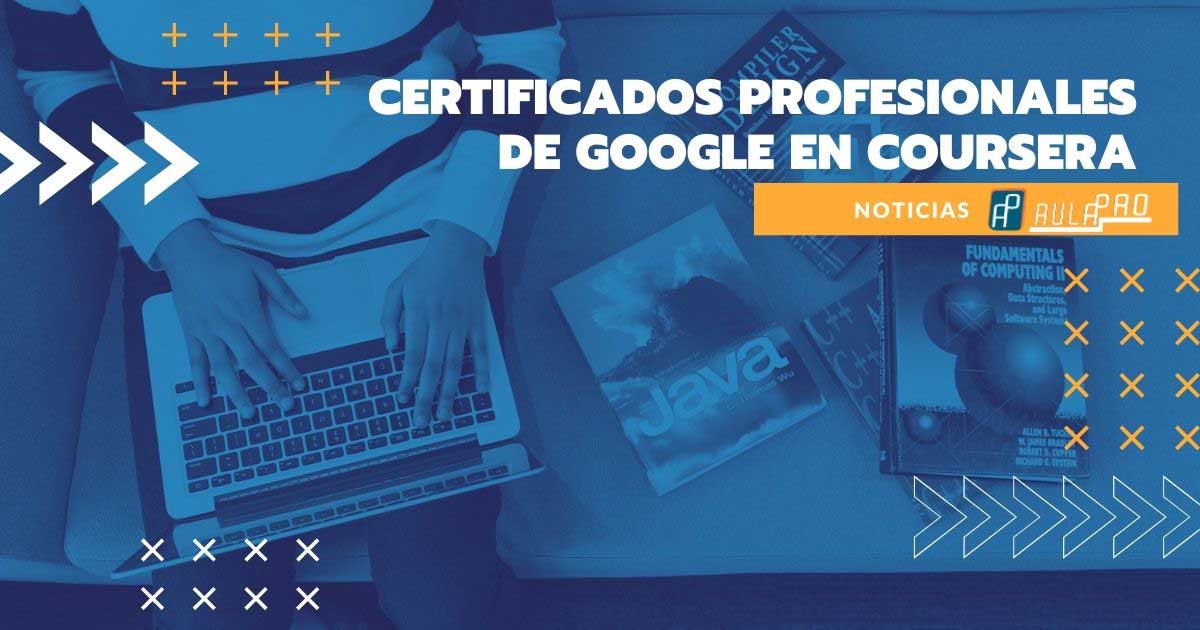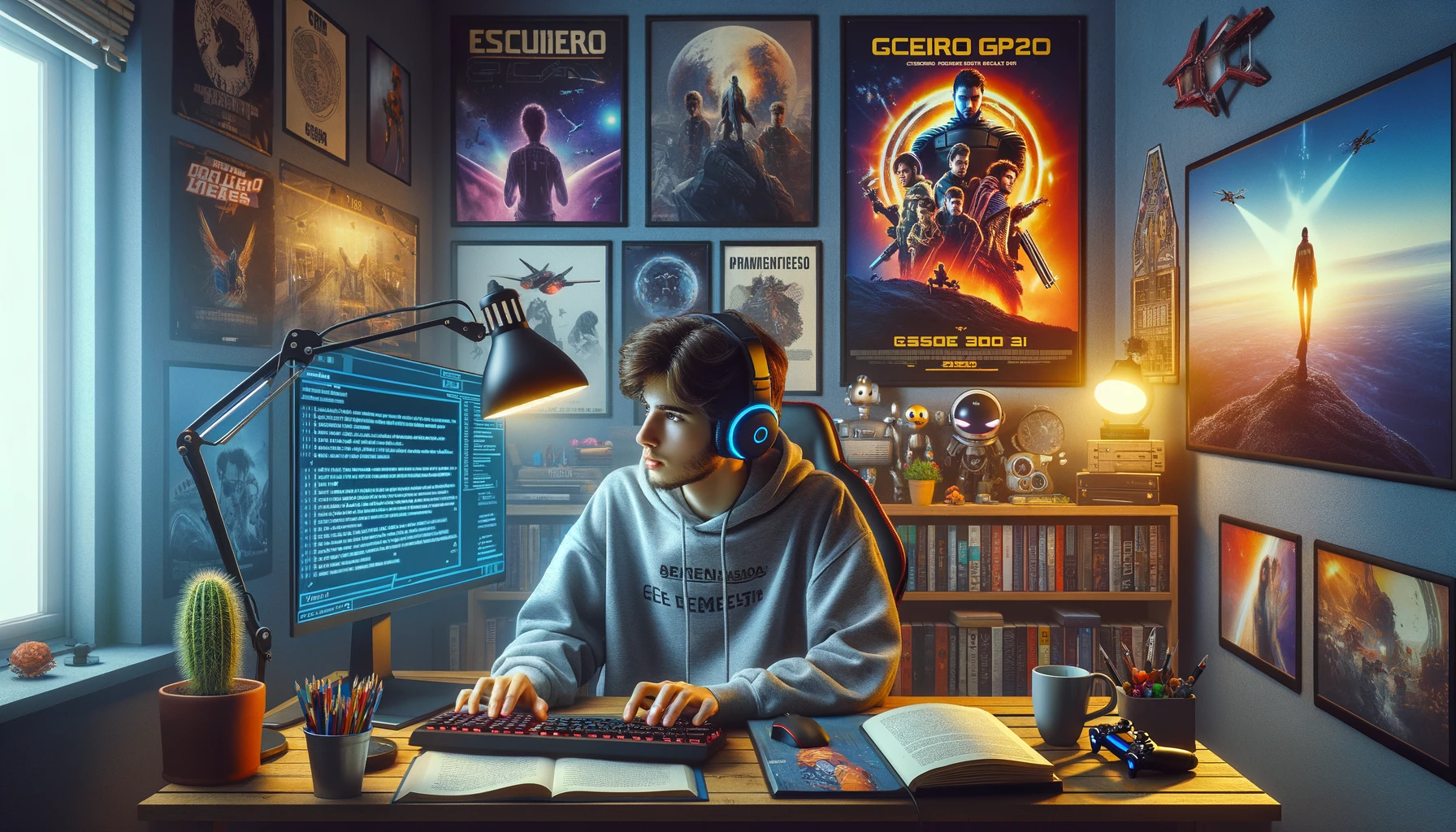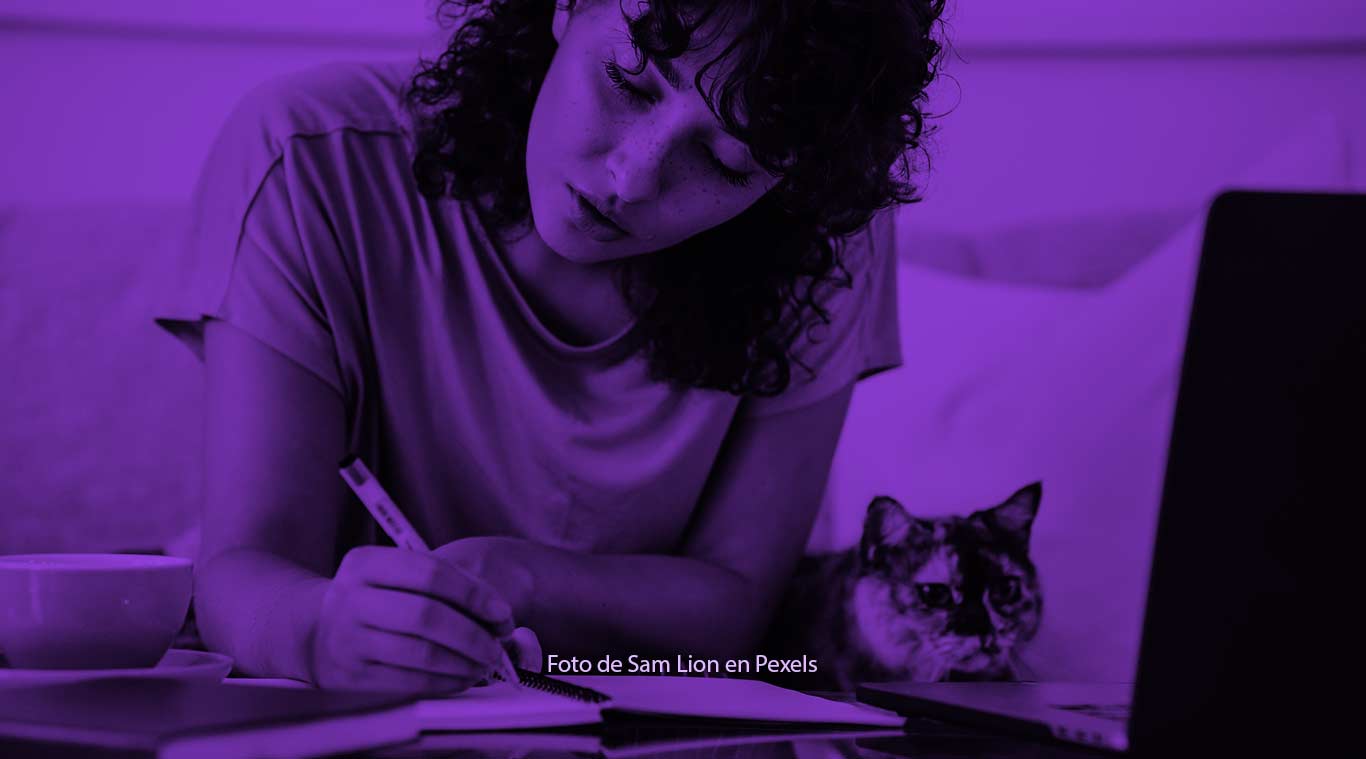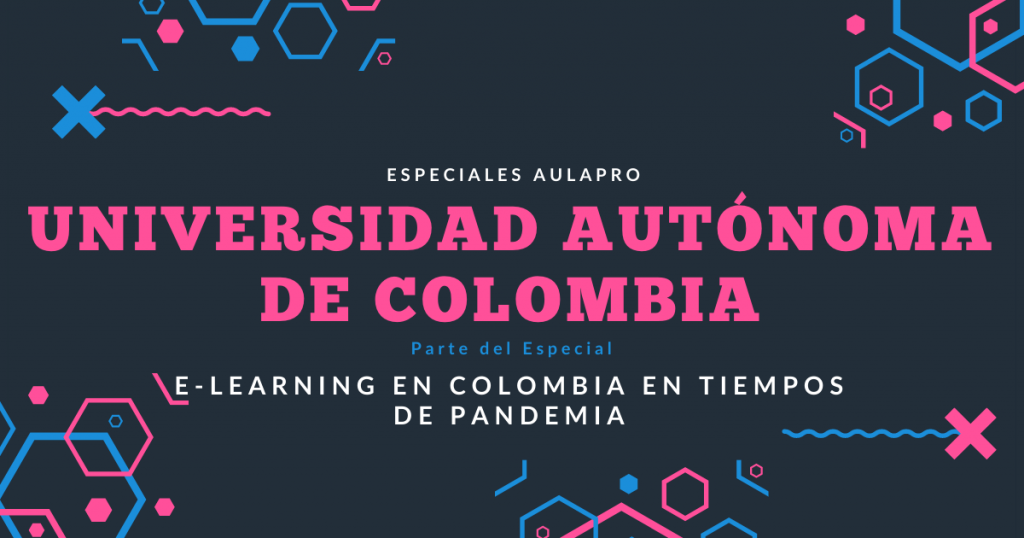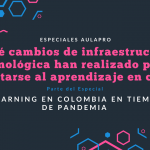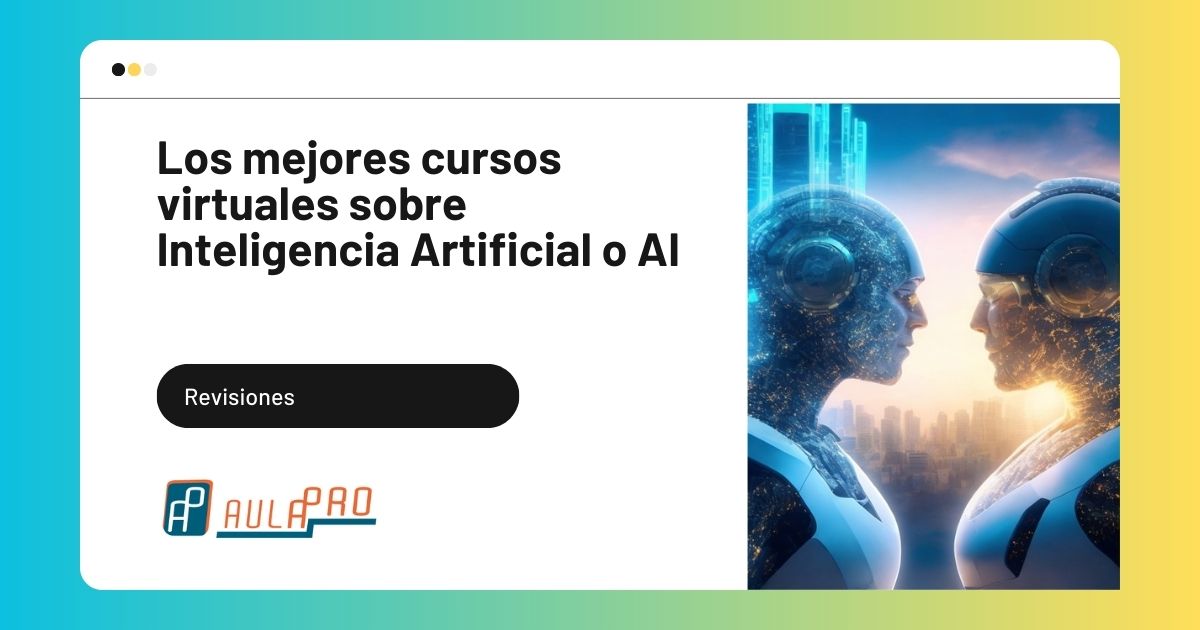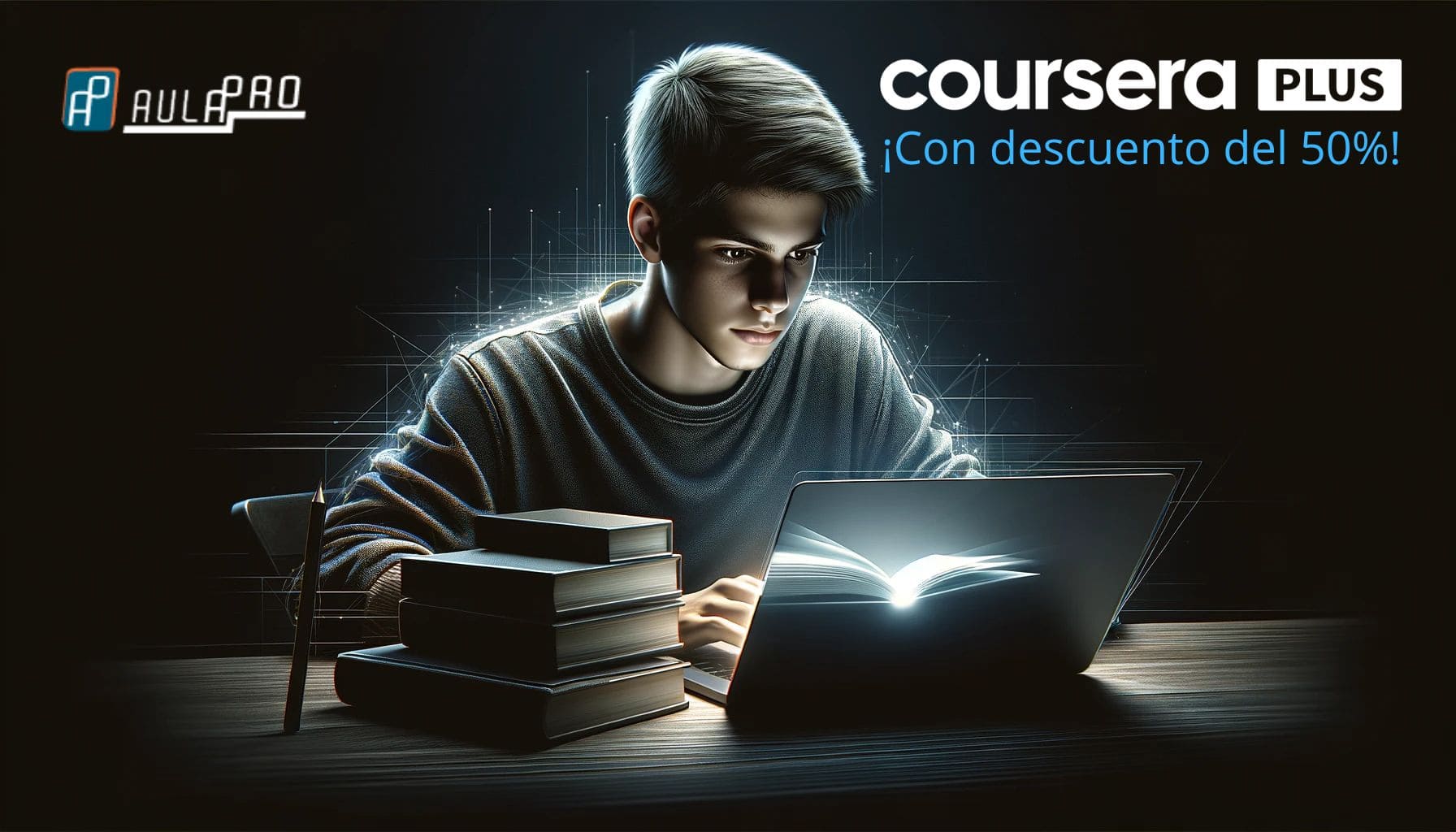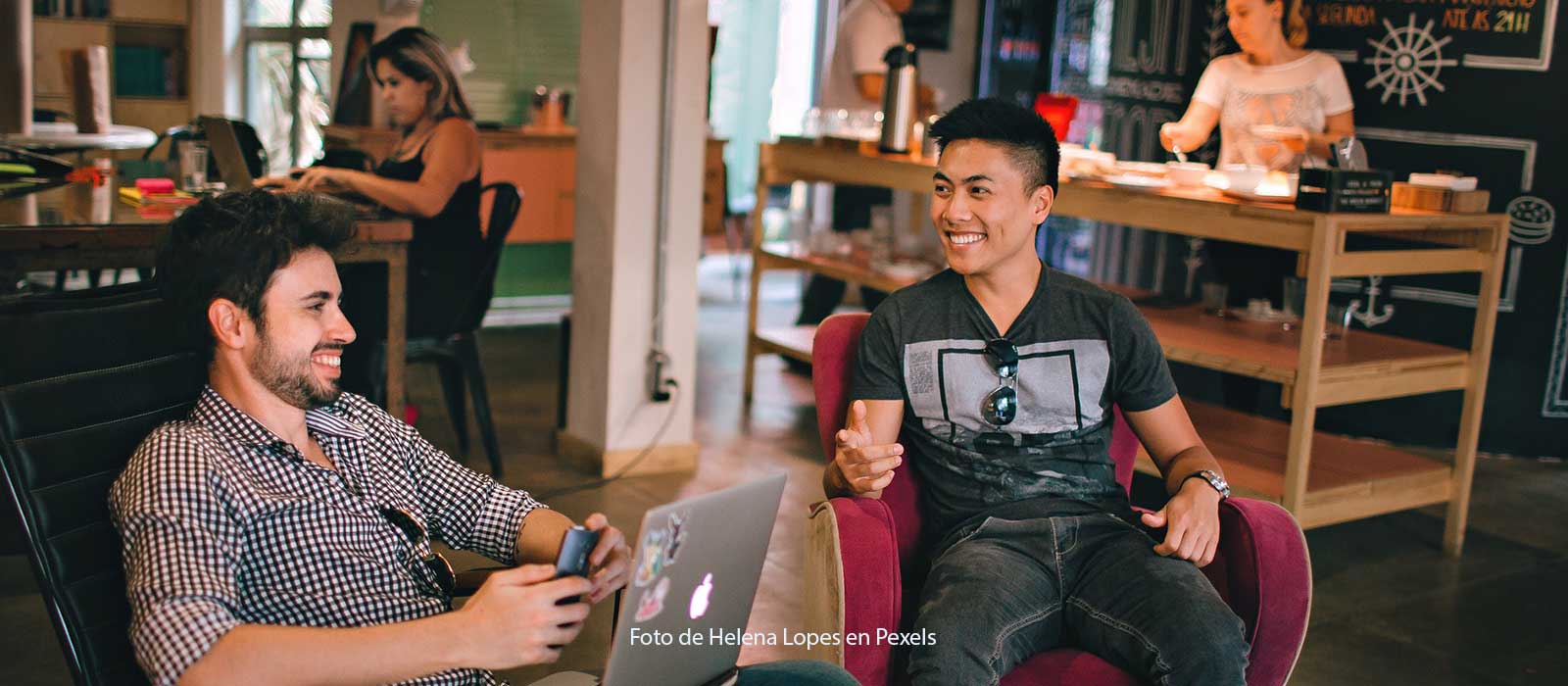The Autonomous University of Colombia has managed to make the "new normality" derived from the pandemic, a driving force behind the virtual processes that were already advancing, to turn online education into one of its main resources not only to face the current crisis, but as a strong factor in the institutional growth strategy. In e-learning, the University has great plans to reach new regions thanks not only to the opportunity opened by the Ministry of National Education through Decree 1330, but also to the recognition enjoyed by its institutional brand.
AULAPRO SPECIAL ON E-LEARNING IN COLOMBIA:
En AulaPro We invited a group of Colombian universities to tell us about their reactions, actions, perspectives and challenges that they were facing due to the "new normality" derived from the pandemic, by covid-19, and how online education or e-learning can play a fundamental role in the near future of higher education in Colombia.
These are the answers of CESA, Autonomous University of Colombia and the free University, whom we thank for their interest in participating.
Table of Contents
How have the universities faced the challenges that the pandemic has represented for higher education?
For the Autonomous University of Colombia, the safety of the educational community is a priority, as is the provision of the service, for which the Rector, Doctor Ricardo Gómez Giraldo, created a committee to address the crisis, responsible for analyzing the situation of isolation due to pandemic and propose pertinent actions.
Take advantage: Annual Coursera Plus with $100 discount. USD $299 for a limited time! Click and find out how.
Therefore, Bienestar Universitario has been key in creating events to guide us in self-care in our homes, pay attention in the areas of health, sports and socioeconomic promotion and also to analyze the particular needs of the educational community.
The administrative team has had to make its procedures more flexible to respond as quickly as possible to the requirements that from one moment to the next have required us to act differently: we are physically separated, but we must connect even more.
It has been very important to promote the use of all communication tools for learning that Teachers and Students have available and reinforce their use with didactic intent, through tutorials and other forms of direct support.
The balance is that, although we long to meet again, we have adapted in the best way to preserve our health and this has allowed us to create ways of working that we will perfect.
How have university students coped with learning challenges in the midst of the pandemic?
Indeed, it has been quite a challenge. From the Superior Council and the academic and administrative instances, we understood that it was time to accelerate the decisions previously made regarding the growth of virtual education, not only as a support for face-to-face interaction that we have had for years, but also by strengthening the institutional conditions for the creation of virtual and distance programs as permitted by current regulations.
To answer this question, we conducted several surveys and the answers are interesting: about 70% of the students surveyed consider that, given the circumstances, virtual interaction is a good measure to continue with the study, 21% believe that it is partially is and 9% disagree with it.
Likewise, around 40% of the students surveyed consider that they learn better with this methodology, 36% think otherwise and for 24% they are indifferent. We consulted the perception regarding the quality and quantity of the material sent by the Teachers and the vast majority considered it good and sufficient. Likewise, they valued the activities designed for learning as adequate, although they also made important recommendations regarding the methodology used in video calls and the creative use of virtual classrooms.
Some students have seen their commitments to study, work and housework multiplied simultaneously, which has created a feeling of anxiety. Others have been affected by the characteristics of their devices and connectivity conditions.
Recently, the Academic Vice President, Dr. Beatriz Herrera Meza, accepted the invitation made by the Ministry of National Education with its Godfather Plan program to create an alliance with the Catholic University of Pereira, with the aim of developing mutual training for the teachers of the two institutions in the educational use of information and communication tools.
Unique opportunity: discounted annual Coursera Plus. Subscribe today and save USD $100. Click and start now!
We understand that the change has been abrupt, but the ability of human beings to adapt to circumstances has stood out. Now it is up to us to plan the best way to carry out the classes next semester, improving the mediated pedagogy and with alternation in face-to-face meetings.
What changes in terms of technological infrastructure have you made in the institution to be able to adapt to learning at home?
The technological infrastructure that we had has adequately supported the increase in the number of people who use the different tools simultaneously. With the support of our engineers from the technological team, we created more virtual classrooms for learning and management, the use of Google classroom and different applications was promoted to create learning environments with the tools that are commonly used by the universities and society in general.
The Communications Office permanently updates the social networks and the web portal www.fuac.edu.co as the main source of information. The great highlight at this time has been the video call, an application that simulates the face-to-face meeting that we are used to.
By increasing the virtual academic offer, we must grow in infrastructure for accommodation, security, equipment and software for the design of educational resources and to support users, since the response to requirements must be as fast as possible, if not immediate.
In accordance with the design process, a multidisciplinary work team is required, suitable and sufficient to transform the contents of the Teachers into digital and interactive teaching resources.
How important is online education in the academic offer of the institution?
The Autonomous University of Colombia has been going through particular circumstances for months and the academic offer through online education is an alternative that is strongly outlined in the strategic horizon for institutional growth.
Its long history and the recognition it has enjoyed from Colombian society creates a good setting to bring the principles and legacy of our Founders to new populations and regions with the quality that characterizes it.
We hope to have internal and external allies that contribute to this project, joining forces in synergy for management, training, extension and research.
With the new normality, does the institution have plans to change the offer of online education?
The "new normality" and Decree 1330 allow us to prepare conditions to design new programs under remote or virtual methodology; We are working on updating the Master's in Edumatics, a program with a long history, whose focus will be more oriented to the methodological and didactic aspect of virtual education.
Today we do not need to ask ourselves if virtual education is valid, but how we develop it with quality. For this reason, the Deans of the Faculties of Law, Engineering, Human Sciences and Economic, Administrative and Accounting Sciences are leading the offer of courses in different modalities such as MOOC courses in mathematics, blended courses for language and virtual courses. professional updating in different disciplines.
The experts speak

